Archive | Social development and protection RSS feed for this section
Governance and public sector management, Social development and protection
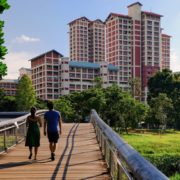 Governance and public sector management, Health, Sanitation, Social development and protection, Water
Governance and public sector management, Health, Sanitation, Social development and protection, Water
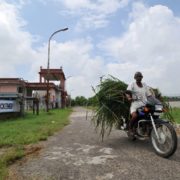 Capacity development, Health, Social development and protection, Urban development, Water
Capacity development, Health, Social development and protection, Urban development, Water
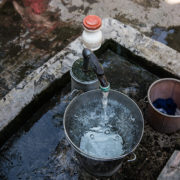 Economics, Governance and public sector management, Health, Social development and protection
Economics, Governance and public sector management, Health, Social development and protection
 Agriculture and natural resources, Health, Social development and protection
Agriculture and natural resources, Health, Social development and protection
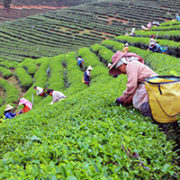 Health, Poverty, Social development and protection
Health, Poverty, Social development and protection
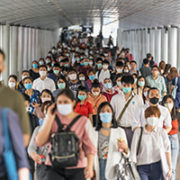 Gender, Poverty, Social development and protection
Gender, Poverty, Social development and protection
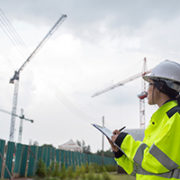 Health, Poverty, Social development and protection
Health, Poverty, Social development and protection
 Poverty, Social development and protection
Poverty, Social development and protection
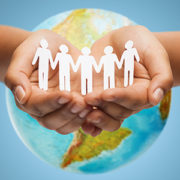 Economics, Environment, Health, Social development and protection
Economics, Environment, Health, Social development and protection

Social infrastructure to drive sustainable development in Asia beyond the pandemic

The coronavirus disease (COVID-19) pandemic discriminates in effect against the poor and the vulnerable, who have weaker immune systems and lack access to treatment and social support due to their economic status. The virus and social-isolation measures have caused a large increase in unemployment for lower-income segments of the population and depressed demand in industries with lower-income workers. It has been estimated that an additional 88 million–115 million people were plunged into extreme poverty in Asia in 2020, a figure that may rise to 150 million by the end of 2021 (Dartanto 2021: 7).
Top journal articles on sanitation reveal new policy insights

An examination of the published journal articles on development economics reveals a striking pattern—very few are devoted to the analysis of sanitation interventions and development. In a recent systematic review of all sanitation-related articles from the top-12 highest-ranking journals on development economics (Revilla et al. 2021), we attempt to understand the linkages between sanitation and development based on current qualitative and quantitative empirical work.
Making citywide inclusive sanitation a reality through capacity development
By Abishek Narayan, Christoph Luthi, Ma. Laarni Revilla, Deepanshu Agarwal and KE Seetha Ram. Posted January 18, 2021

Over a billion people across Asia and the Pacific still lack access to basic sanitation services (JMP 2019). Most low- and middle-income countries in Central Asia, South Asia, and East Asia still do not have safely managed sanitation services. Further, only a fifth of the countries practicing open defecation are on track to eliminate this practice around the world. Clearly, business as usual in the sanitation sector has not solved this challenge in the last several decades.
Toward a robust economic recovery from COVID-19 in Asia and the Pacific

The coronavirus disease (COVID-19) pandemic has been a truly global shock to public health, causing one of the most severe global economic downturns since the Great Depression of the 1930s. Against this context, the 2020 ADBI Annual Conference brought together leading academics, think tank researchers, and policy makers to discuss the impacts of COVID-19 and its policy implications, with a focus on Asia and the Pacific.
Enhancing agriculture potential in developing countries during the COVID-19 crisis

Much of the displaced labor force from urban centers is moving back to rural homes due to closures from restrictions put in place to combat the coronavirus disease (COVID-19). It is important that this displaced labor force is put in a working environment and kept engaged, specifically in the agricultural sector, so that such the young and energetic in the workforce are not left out. A disgruntled labor force without financial support might turn to unwanted or illegal activities.
COVID-19 hitting migration and remittances hard in developing Asia
By Aiko Kikkawa Takenaka, James Villafuerte, Raymond Gaspar and Badri Narayanan. Posted August 25, 2020

The coronavirus disease (COVID-19) pandemic has devastated economies worldwide, slashing jobs and incomes. The Asian Development Bank (ADB) (2020a) estimates that employment in Asia and the Pacific will fall by as much as 167 million jobs in 2020 should containment measures last 6 months from when the outbreak first intensified in the respective countries. In turn, wage incomes in the region are projected to fall from $359 billion to $550 billion.
How can trade liberalization boost women’s employment and well-being? An analysis of the Thai labor market

As the economy is a gendered structure, trade liberalization affects women and men differently in various dimensions and through different channels. Trade liberalization causes structural transformation in terms of production and, therefore, leads to changes in employment patterns and income. However, the effect of trade is heterogenous across different sectors.
Barefoot doctor 2.0: Making it happen

Over 50 years ago, a pioneering medical system was launched in the People’s Republic of China (PRC). Known as the “barefoot doctors” scheme, the program liberalized healthcare beyond doctors and allowed some 1.5 million community health workers to practice basic medicine after 3–6 months of training. This effectively created a national network of healthcare services for the very first time, increasing rural healthcare coverage to 90%.
Achieving a peaceful world: What can intellectuals do to make it happen?

The coronavirus disease (COVID-19) has brought the world together, although in a somewhat disturbing manner. Every individual on the planet is hoping for relief from the pandemic via a cure for the afflicted and a vaccine for prevention. Notwithstanding the urgency of addressing this immediate problem, the world economy and society should use this challenge to undertake initiatives that last longer and hopefully forever.
ESG investment growth amid the COVID-19 crisis

Environmental, social, and governance (ESG) investment is critical for achieving inclusive growth in Asia and can play a critical role in reducing the income inequality caused by the coronavirus disease (COVID-19).


Search
Subscribe / Connect to Asia Pathways
Subjects
- Accelerating Progress in Gender Equality
- Addressing Remaining Poverty and Reducing Inequality
- Agriculture and natural resources
- Capacity development
- Climate change
- Economics
- Education
- Energy
- Environment
- Finance and Innovation
- Finance sector development
- Gender
- Globalization and Economic Stability
- Governance and public sector management
- Health
- Human Capital Development for Inclusive Growth and Shared Prosperity
- Industry and trade
- Information and Communications Technology
- Infrastructure
- Making Cities More Livable
- Miscellaneous
- Population
- Poverty
- Private sector development
- Regional cooperation and integration
- Sanitation
- Social development and protection
- Strengthening Governance and Institutional Capacity
- Subjects
- Transport
- Uncategorized
- Urban development
- Video Blog
- Water
Recent Posts
- The Promise and Perils of Mother Tongue-Based Education
- From Crisis to Resilience: The Evolution of the Banking Sector in Asia and the Pacific
- Tariffs on the Table: What Could Be Asia’s Next Move?
- Investing in Childcare a Win for Women and the Economy
- Flush and Flourish: Upgraded Toilets Can Transform Lives in Rural Asia




Recent Comments